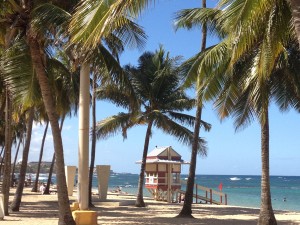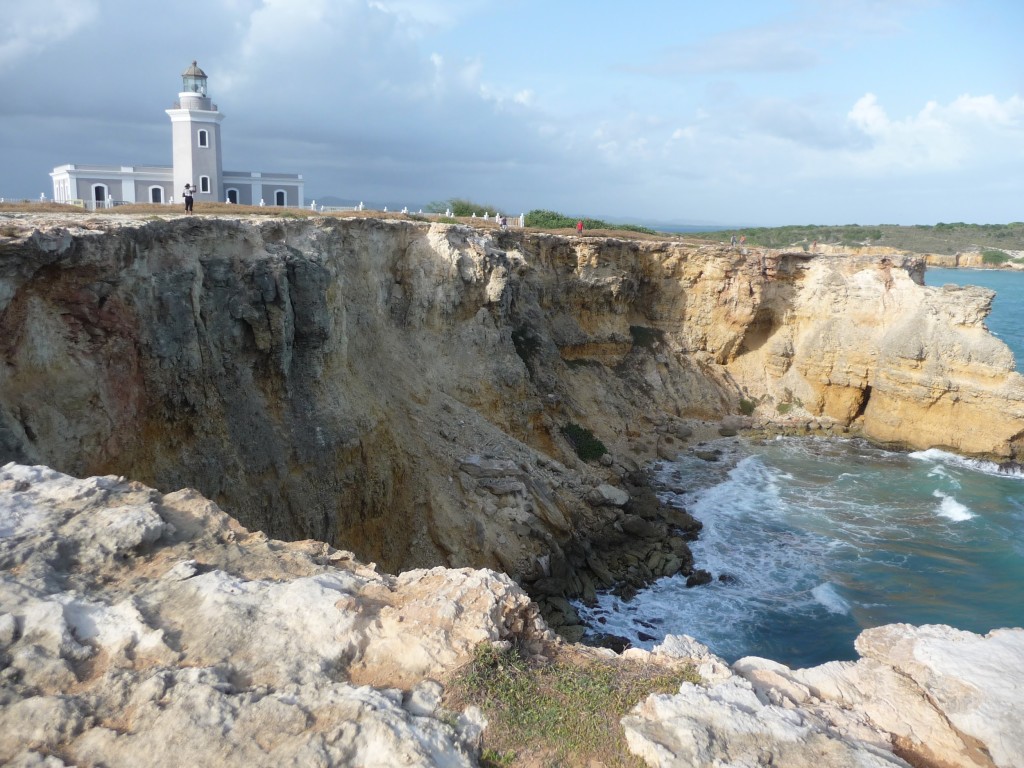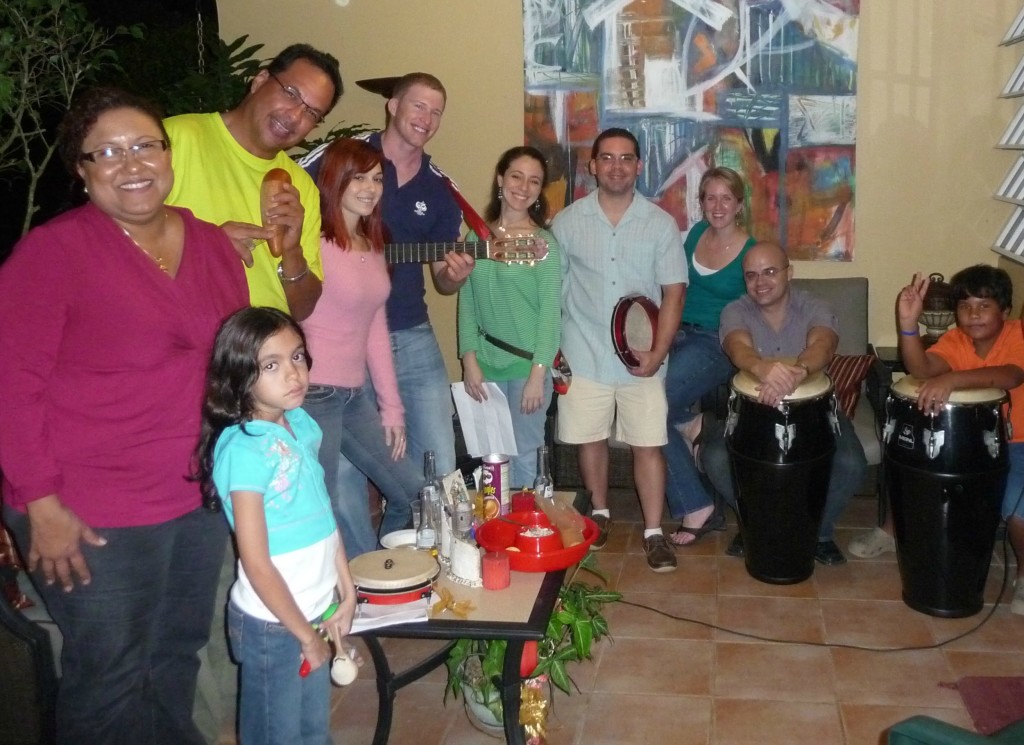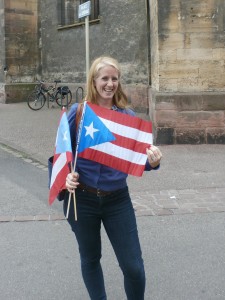 As an interculturalist who has immersed herself fully in the Puerto Rican lifestyle, I am bothered by people who question how far the drive is from Florida to Puerto Rico. I am frustrated by those who insist that I must be talking about Costa Rica or others who generally have no clue that Puerto Rico is part of the United States. But then I remember what it was like when I lived on the mainland and find less fault with these naïve souls.
As an interculturalist who has immersed herself fully in the Puerto Rican lifestyle, I am bothered by people who question how far the drive is from Florida to Puerto Rico. I am frustrated by those who insist that I must be talking about Costa Rica or others who generally have no clue that Puerto Rico is part of the United States. But then I remember what it was like when I lived on the mainland and find less fault with these naïve souls.
I can’t completely blame these people for knowing so little of Puerto Rico because once upon a time, I knew nothing either. I knew that a couple of the people from Sesame Street were Puerto Rican and I had seen Ricky Martin in a couple of music videos, but that was it. Puerto Rico just wasn’t a topic of discussion in Midwestern farming communities. Perhaps that has changed over the last decade, but I rather doubt it.
One of the best ways that I think there is to educate mainlanders (and others) about Puerto Rico, and its importance as a Caribbean gateway to South America, is to encourage more international education and study abroad providers to partner with Puerto Rico’s universities to give students a chance to “study abroad” in a culture and country that is most definitely different from the mainland, but without many of the issues of passports and visas of further away locales.
There are many reasons why study abroad program coordinators should put Puerto Rico front and center on their maps. Here are just a few that come to mind.
1) Practice your Spanish
I have heard many people comment on how Puerto Rican Spanish is not real Spanish. I beg to differ. If you come to Puerto Rico having basic or no Spanish skills, you will learn the important words quickly. Yes, you will learn to cut the “s”off of words (“gracia” instead of “gracias”) and will learn terms like “guineo” (banana) that will confuse other Spanish speakers, but if you make the commitment and get involved, you will learn enough to get by in any Spanish-speaking country. Asking for directions, reading a menu, and navigating public transportation will soon be second nature.
 2) Experience a different culture without worrying about visas and passports
2) Experience a different culture without worrying about visas and passports
Because Puerto Rico is part of the United States, no American citizen is required to have a passport or visa to study on the island. This makes it really easy to go back and forth should you really want to spend holidays with your family. (Although the holidays are the best time of all to experience Puerto Rican culture so staying put is highly recommended). Also, the monetary system is the same as on the mainland and with cell phones you can text and call at normal long-distance rates. Get a plan that includes long-distance and you’re golden!
3) Hone your athletic skills
If you are an athlete, Puerto Rico is a great place to train. While many student athletes argue that study abroad is not possible for them because of training and time issues, it can be done. Come and see for yourself! With the sunshine high in the sky most days, you can run outdoors or swim in the ocean. Take up surfing, work on your backhand or shoot hoops at one of the many outdoor courts. Join one of the university-sponsored teams and you may compete in the yearly “Justas” competition, which affords the winning school bragging rights along with trophies.
4) Learn a political system that’s similar but different
Political science majors will take away alternative viewpoints after analyzing the local political system and its connections to the US Federal government. For instance, Pell grants, Medicare and welfare programs are available to local citizens, and local primaries for the Democrats and Republicans are held, but residents still do not vote for the US President. Instead, Puerto Ricans vote for the governor of Puerto Rico, which usually ping-pongs back and forth between the two main parties. Those parties, by the way, are similar to Republicans and Democrats (i.e.: they can’t figure out how to work together) but are still unique in many ways.

5) Study marine life in ways you couldn’t stateside
Once you have seen the sparkling dinoflagellates in the bioluminescent bays around the island, you will be hooked on the cool opportunities to study marine life. Grab your SCUBA gear and go deeper still to see the amazing fish and other creatures native to this area. You might even see a whale if you’re around at the right time of year.
6) Spend your free time hanging out on the beach
If you are studying at a land-locked institution, going abroad to Puerto Rico will certainly be a change of pace. When you are not in class, catch a ride to the beach with some friends to hang out with the locals. You’re likely to find the beach littered with people jamming to salsa or reggaeton music while tossing back cold drinks. Join one of these groups (most folks are anxious to meet tourists) or start your own party! Didn’t bring your cooler? Buy a “piragua” from one of the people selling shaved ice as they walk the shores. Hungry? Order an “empanadilla” filled with meat, seafood, or even pizza fixings from another wandering beach bum. In the metro area, you can reach the beach from most anywhere in about 20-30 minutes. Just make sure to lather on the sunscreen.

7) Become part of a new family
One of the best things about living in Puerto Rico, in my opinion, is being taken in as part of the family from day one. Puerto Ricans are typically very welcoming and family-oriented and are always interested in sharing their culture with foreigners. Make an effort to learn or practice Spanish with them, and you’ll get even further. Attend worship services, participate in meet-ups or generally initiate conversations anywhere. You’re bound to be invited to parties or other celebrations. By the time you leave, you’ll have a whole new set of aunts, uncles and cousins who truly do hope that you will come back and visit them.
8) Expand your job opportunities
More than 80,000 Puerto Ricans have left the island in the last few years due to economic instability, mostly moving to Florida and Texas. These people are often bilingual and highly-educated middle class citizens, but not all of them fit this category. Frequently one person (and maybe the kids) speaks English well, but the other partner or older family members do not. They need doctors, lawyers, teachers, social workers and more who understand their language and culture. If you have the experience of living in Puerto Rico, you increase your chances of being selected from a pool of candidates for these jobs.
9) Develop skills that will last a lifetime
Living in Puerto Rico is not like living in the mainland US. Despite the number of familiar stores and fast food restaurants, the culture is very different here. Residing on the island will quickly teach you about differences in concepts like time and personal space. You will learn that yes does not always mean yes and how to read between the lines. You will develop skills in adaptability and flexibility, self-reliance, problem solving, and getting along with those whose opinions differ from yours. Consciously or unconsciously, you will carry these skills with you long into your future, making you a better employee, family member, and global citizen.
Particularly for those who want to study abroad, but are not sure if they are up to going so far from home, Puerto Rico is a great option. Learn a new language and culture, develop crucial job skills, enjoy the outdoors, and leave the visa stresses to others. Get on a plane and land at your destination in a few short hours. Call Mom when you land without having to forgo laundry for a week. Invite friends to visit for Spring Break. Get firsthand experience in your area of studies that will make you stand out from the pack when job hunting. And have a blast doing it all!
If you haven’t previously considered Puerto Rico as an option for “studying abroad,” I would encourage you to do so because in addition to the previous points, Puerto Rico truly is the Island of Enchantment. Don’t miss out on its beauty!
 About the Author: Julie Parenteau, PhD is an interculturalist of all trades and self-proclaimed AmeRican. By day she teaches and trains expatriates and local employees how to thrive culturally and linguistically in Puerto Rico, while by night she salsa dances her way through half time of the Green Bay Packers games. With more than a decade of experience spanning intercultural training and education, teaching English and Spanish, and helping dozens of expatriates adjust to living in Puerto Rico, Julie knows what it takes to build communication bridges between cultures and engage students and faculty in critical discourse surrounding social justice and diversity and inclusion issues. As Director of Global Perceptions, Julie is committed to designing curriculum and training programs that foster cultural awareness and global citizenship in Puerto Rico and beyond. When she is not hard at work, you can find her working in her garden, playing with her rescue dogs or doing some beachfront reading. Connect with her via Twitter @relocationpr or @drjparenteau.
About the Author: Julie Parenteau, PhD is an interculturalist of all trades and self-proclaimed AmeRican. By day she teaches and trains expatriates and local employees how to thrive culturally and linguistically in Puerto Rico, while by night she salsa dances her way through half time of the Green Bay Packers games. With more than a decade of experience spanning intercultural training and education, teaching English and Spanish, and helping dozens of expatriates adjust to living in Puerto Rico, Julie knows what it takes to build communication bridges between cultures and engage students and faculty in critical discourse surrounding social justice and diversity and inclusion issues. As Director of Global Perceptions, Julie is committed to designing curriculum and training programs that foster cultural awareness and global citizenship in Puerto Rico and beyond. When she is not hard at work, you can find her working in her garden, playing with her rescue dogs or doing some beachfront reading. Connect with her via Twitter @relocationpr or @drjparenteau.
